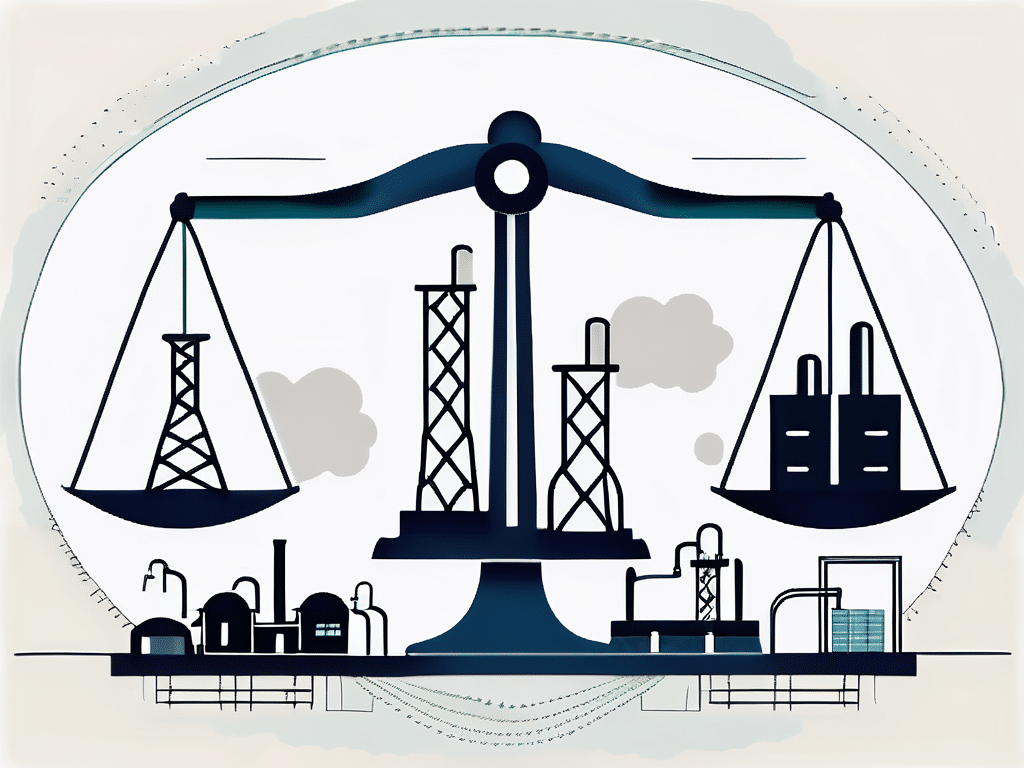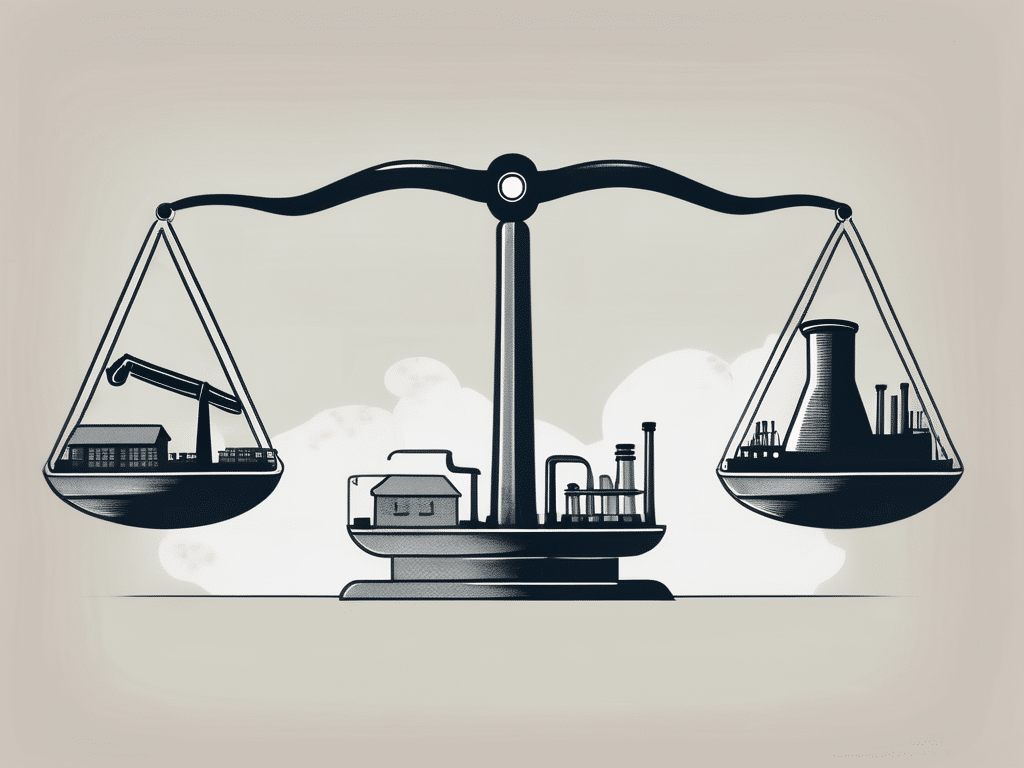Corporations play a significant role in modern economies, but they also face criticism for their impact on society. In this article, we will explore the pros and cons of corporations, examining their advantages, disadvantages, and overall impact.
Understanding Corporations
Before delving into the pros and cons, we should first understand what corporations are. A corporation is a legal entity that is separate from its owners, known as shareholders. There are different types of corporations, including C corporations, S corporations, and limited liability companies (LLCs). Each type offers unique benefits and limitations.

Corporations are complex entities that have a significant impact on the business world. They are created by filing the necessary paperwork with the state in which they operate and are governed by a board of directors who make key decisions on behalf of the company. Shareholders, who own shares of the corporation, have limited liability, meaning their personal assets are typically protected in the event of company debts or legal issues.
Definition and Types of Corporations
Corporations are organizations that have obtained legal recognition as a separate entity from their shareholders. C corporations are the most common type, known for their ability to issue both common and preferred stock. Conversely, S corporations are pass-through entities, allowing profits and losses to flow directly to shareholders’ personal tax returns. LLCs provide liability protection for their owners, similar to corporations.
Within the realm of corporations, there are also non-profit organizations that operate similarly to for-profit corporations but with a focus on fulfilling a charitable mission rather than maximizing profits. These non-profits still have boards of directors and shareholders, but any profits made are reinvested into the organization’s cause rather than distributed to shareholders.
The Role of Corporations in the Economy
Corporations play a vital role in driving economic growth and development. They create jobs, generate tax revenues, and stimulate innovation. By pooling resources and experience, corporations can undertake large-scale projects that individuals or small businesses might not be able to handle. Additionally, corporations often contribute to economic stability and sustainability by diversifying their operations and investing in research and development.
Furthermore, corporations can have a global reach, operating in multiple countries and contributing to the interconnectedness of the world economy. This international presence allows corporations to access new markets, facilitate trade between nations, and bring diverse perspectives to their operations. However, this global reach also raises concerns about corporate influence on local economies and the potential for exploitation of labor and resources in developing countries.
The Advantages of Corporations
Corporations offer several advantages that make them an attractive business structure for many entrepreneurs and investors.
Establishing a corporation provides entrepreneurs with a distinct advantage in terms of credibility and prestige. The corporate structure conveys a sense of permanence and stability to clients, customers, and partners, which can help in building trust and fostering long-term relationships. This can be particularly beneficial in industries where trust and reputation play a crucial role in business success.
Financial Benefits
One of the main advantages of corporations is their ability to raise large amounts of capital through the sale of stocks and bonds. This allows corporations to fund long-term projects, expand their operations, and invest in research and development. The availability of capital also provides corporations with the flexibility to weather economic downturns.
Moreover, the corporate structure enables companies to access a wide range of financing options, including bank loans, lines of credit, and venture capital. This diverse pool of funding sources can help corporations seize growth opportunities, navigate financial challenges, and drive strategic initiatives with confidence.
Limited Liability and Perpetual Existence
Another advantage of corporations is limited liability. Shareholders’ liability is typically limited to their investment in the corporation, protecting them from personal financial risks. Additionally, corporations have perpetual existence, meaning they can continue to operate even if shareholders change or pass away.
Attracting Investment and Talent
Corporations can attract and retain investment and top talent by offering stock options, employee benefits, and career advancement opportunities. This ability to incentivize employees and shareholders fosters innovation, productivity, and growth.
Furthermore, the corporate structure allows for the implementation of sophisticated compensation packages, such as performance-based bonuses and equity grants, which can align the interests of employees with the long-term success of the company. This alignment of incentives can drive employee engagement, loyalty, and commitment, ultimately leading to a more motivated and high-performing workforce.
The Disadvantages of Corporations
Despite their advantages, corporations are not without their drawbacks. It is essential to consider these disadvantages when deciding on an appropriate business structure.

When delving deeper into the complexities of corporations, one must acknowledge the intricate setup and management processes involved. Establishing a corporation demands meticulous attention to legal and regulatory frameworks. From ensuring compliance with company laws to filing annual reports, holding meetings, and maintaining detailed accounting records, the administrative burden can be overwhelming. Navigating through these requirements not only consumes valuable time but also incurs additional costs, making the operational landscape of corporations a challenging terrain to traverse.
Moreover, the realm of corporations is not devoid of ethical dilemmas, especially for larger entities. The potential for ethical issues looms large, encompassing concerns such as environmental degradation, labor exploitation, and questionable business practices. These challenges can significantly impact a corporation’s reputation and alienate stakeholders, underscoring the critical importance of robust corporate governance and ethical decision-making. Safeguarding ethical standards within a corporation is paramount to fostering trust and sustainability in today’s socially conscious business environment.
Complex Setup and Management
Setting up and managing a corporation can be complex, requiring adherence to legal and regulatory frameworks. Corporations must comply with company laws, file annual reports, hold meetings, and maintain proper accounting records. This can result in increased administrative costs and time-consuming processes.
Potential for Ethical Issues
Corporations, particularly larger ones, may face ethical challenges related to their operations. Issues such as environmental damage, labor exploitation, and questionable business practices can tarnish a corporation’s reputation and alienate stakeholders. Proper corporate governance and responsible decision-making are crucial to mitigate these potential ethical issues.
Taxation and Financial Disadvantages
Corporations often face higher tax rates compared to other business structures. Additionally, corporations may be subject to double taxation, where both the corporation’s profits and the shareholders’ dividends are taxed. This can reduce the overall profitability of the corporation and impact shareholders’ returns.
The Impact of Corporations on Society
Beyond their financial implications, corporations also have a significant impact on society as a whole. Let’s delve deeper into the various dimensions of this impact.

Economic Impact
Corporations contribute to economic growth by creating jobs and generating revenue. When corporations thrive, they have the potential to stimulate local economies, attract investments, and foster innovation. Additionally, many corporations invest in local communities through corporate social responsibility initiatives and philanthropic endeavors. These efforts can support education, healthcare, and infrastructure development. However, it is important to acknowledge that some argue corporations can exacerbate income inequality and concentrate power in the hands of a few. This ongoing debate highlights the need for a balanced approach to corporate influence on the economy.
Environmental Impact
Corporations’ environmental impact is a growing concern in today’s world. While many corporations have taken steps to reduce their carbon footprint and adopt sustainable practices, others continue to prioritize profits over environmental responsibility. The decisions made by corporations can have far-reaching implications for ecosystems, climate change, and future generations. It is crucial for corporations to recognize their role in environmental stewardship and actively work towards minimizing their negative impact. By embracing renewable energy, implementing eco-friendly manufacturing processes, and supporting conservation efforts, corporations can contribute to a more sustainable future.
Social Impact
The social impact of corporations encompasses a wide range of factors that extend beyond their economic contributions. Labor practices, employee well-being, and community relations all play a significant role in shaping the social fabric of society. Some corporations prioritize fair wages, employee benefits, and diversity and inclusion initiatives, positively impacting the communities where they operate. By fostering a supportive and inclusive work environment, corporations can empower individuals and contribute to social progress. However, it is important to acknowledge that not all corporations adhere to these principles. Some have faced criticism for exploitative labor conditions and questionable human rights practices. This highlights the need for increased transparency and accountability within the corporate sector.
In conclusion, corporations offer various advantages, such as financial benefits, limited liability, and the ability to attract investment and talent. However, they also come with disadvantages, including complexity in setup and management, potential ethical issues, and taxation challenges. The impact of corporations on society is profound, with economic, environmental, and social implications. As with any business structure, careful consideration is necessary to strike a balance between profit generation and responsible corporate citizenship. By recognizing their role as stakeholders in society, corporations can actively work towards creating a positive and sustainable impact on the world


